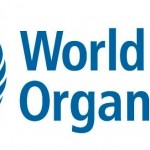 The Ebola virus that has killed thousands in West Africa is still “running ahead” of efforts to contain it, the head of the World Health Organization has said.
The Ebola virus that has killed thousands in West Africa is still “running ahead” of efforts to contain it, the head of the World Health Organization has said.
Director general Margaret Chan said the situation had improved in some parts of the worst-affected countries, but she warned against complacency. The risk to the world “is always there” while the outbreak continues, she said.
She said the WHO and the international community failed to act quickly enough.
The death toll in Guinea, Liberia and Sierra Leone stands at 6,331. More than 17,800 people have been infected, according to the WHO.
“In Liberia we are beginning to see some good progress, especially in Lofa county [close to where the outbreak first started] and the capital,” said Dr Chan.
Cases in Guinea and Sierra Leone were “less severe” than a couple of months ago, but she said “we are still seeing large numbers of cases”.
‘Hunting the virus’
Dr Chan said: “It’s not as bad as it was in September. But going forward we are now hunting the virus, chasing after the virus. Hopefully we can bring [the number of cases] down to zero.”
The official figures do not show the entire picture of the outbreak. In August, the WHO said the numbers were “vastly under-estimated”, due to people not reporting illnesses and deaths from Ebola.
Dr Chan said the quality of data had improved since then, but there was still further work to be done.
She said a key part of bringing the outbreak under control was ensuring communities understood Ebola. She said teams going into some areas were still being attacked by frightened communities.
“When they see people in space suits coming into their village to take away their loved ones, they were very fearful. They hide their sick relatives at home, they hide dead bodies.
“[This is] extremely dangerous in terms of spreading disease. So we must bring the community on our side to fight the Ebola outbreak.
Community participation is a critical success factor for Ebola control.
“In all the outbreaks that WHO were able to manage successfully – that was a success element and this [is] not happening in this current situation.”
Benefit of hindsight
The WHO faced criticism over its handling of the crisis at the start of the outbreak. An internal document leaked in October said those involved “failed to see some fairly plain writing on the wall”.
The first Ebola victim in West Africa has been retrospectively traced back to a two-year-old boy called Emile. He died in south-east Guinea in December 2013. No-one knew it was Ebola at the time.
The virus had never been seen in West Africa. The first cases started emerging in a remote part of the country with almost non-existent health facilities, and nobody spotted what it was in the first couple of months.
An outbreak was eventually declared at the end of March after 50 people had died. The WHO announced a global health emergency on 8 August.
“It is fair to say the whole world, including WHO, failed to see what was unfolding, what was going to happen in front of our eyes,” said Dr Chan.
“Of course, with the benefit of hindsight, if you ask me now… we could have mounted a much more robust response.”
The charity Medecins Sans Frontieres set up the first treatment centres when the outbreak began.
Andre Heller Perache from the charity said: “There was a series of press statements in June when we were talking about the magnitude of the crisis [saying] it was much worse then people had recognised and we made a desperate cry for help at that point.
“The WHO rebuffed that and said that’s not accurate. They later reconsidered their position and agreed with ours and shortly after that declared an emergency.”
The WHO is not an aid agency like MSF but does provide advice and technical support and is supposed to co-ordinate help.
The WHO says a full review and analysis of global responses to the crisis will be completed and made public once the outbreak is under control.
Dr Chan said: “As the director general of the WHO, this happened on my watch and I have a duty and responsibility to see it through and to learn lessons and to make changes in the organisation to make it stronger.”
Source: BBC News

















